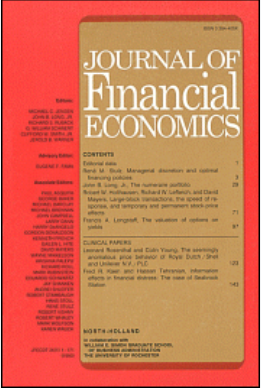银行压力测试、人力资本投资和风险管理
IF 10.4
1区 经济学
Q1 BUSINESS, FINANCE
引用次数: 0
摘要
本文研究了全球金融危机和压力测试出现后银行在风险管理人力资本方面的投资。我们的研究结果表明,“太大而不能倒”的扭曲可能削弱了大型银行投资风险管理人才的动力。以大型银行为重点的压力测试刺激了对熟练的定量风险管理人员的需求,但这种需求仅在预期测试和测试表现不佳之后出现。压力测试不影响对90%以上与通过测试无关的风险管理工作的需求,限制了其在改进风险管理实践方面的有效性。本文章由计算机程序翻译,如有差异,请以英文原文为准。
Bank stress testing, human capital investment and risk management
This paper studies banks’ investment in risk management human capital following the Global Financial Crisis and the advent of stress testing. Our results suggest that ‘Too Big to Fail’ distortions may have weakened large banks’ incentive to invest in risk management talent. Stress testing, which focuses on the largest banks, spurred demand for skilled quantitative risk managers, but only narrowly in anticipation of a test and following poor performance on a test. Stress testing does not affect demand for the over 90 % of risk management jobs not linked to passing tests, limiting its effectiveness in improving risk management practices.
求助全文
通过发布文献求助,成功后即可免费获取论文全文。
去求助
来源期刊

Journal of Financial Economics
Multiple-
CiteScore
15.80
自引率
4.50%
发文量
192
审稿时长
37 days
期刊介绍:
The Journal of Financial Economics provides a specialized forum for the publication of research in the area of financial economics and the theory of the firm, placing primary emphasis on the highest quality analytical, empirical, and clinical contributions in the following major areas: capital markets, financial institutions, corporate finance, corporate governance, and the economics of organizations.
 求助内容:
求助内容: 应助结果提醒方式:
应助结果提醒方式:


